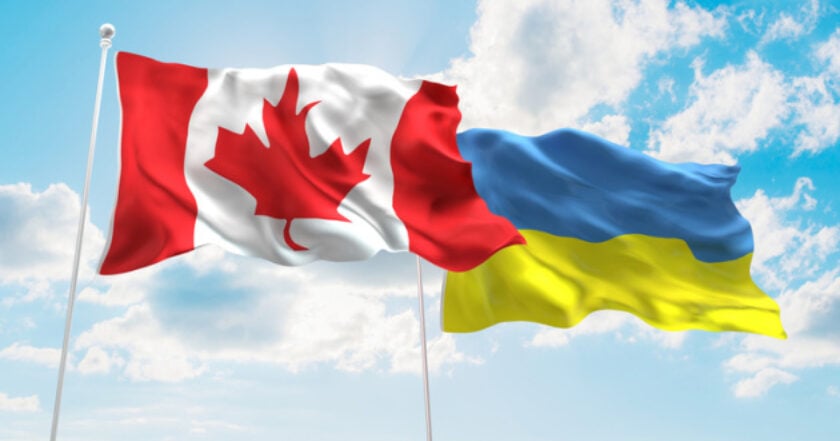Canada to allocate $23 mln for ammunition to Ukraine

Canada will join the Czech initiative and allocate CA$30 million (about US$23 million) for ammunition for Ukraine outside NATO.
Ottawa is also studying how useful decommissioned CRV7 rockets will be for Ukraine, and how to transport them safely, Rubryka reports, citing CBC News and Canadian Defense Minister Bill Blair.
"Canada has signaled it's prepared to get behind a Czech Republic initiative to ship tens of thousands of artillery shells from different countries to Ukraine on an urgent basis," said CBC News. "Although the details are still being finalized, defense sources say the federal government could contribute as much as $30 million to the plan."
Czech President Petr Pavel announced during the Munich Security Conference that he had reached an agreement with Denmark, the Netherlands, and Canada to combine efforts to search for critical equipment and ammunition for Ukraine worldwide. According to him, the Czech Republic has already found 800,000 artillery shells, but Prague requires financial support from partners to transfer them to Ukraine.
Canadian Defense Minister Bill Blair confirmed that he had signed a memorandum of understanding with the Czech Republic about helping purchase ammunition but did not provide any agreement details.
"Canada's allies, meanwhile, fear that Ottawa may choose to invest in munitions production through the Czech Republic while continuing to defer building up domestic weapons manufacturing capacity," CBC News reported, citing sources in Canadian defense.
Canada has not yet concluded agreements with its own producers of artillery shells to increase production since this requires updating enterprises, which will take at least three years and about $300 million from the state budget.
According to Canadian officials, the long-term demand for artillery shells worldwide will not be sufficient to justify such investments.
Canada is also studying how useful decommissioned CRV7 rockets are. According to Blair, Canada considered the possibility of sending these rockets to Ukraine at the beginning of the full-scale invasion, "but at that time, Ukraine's ability to use them was extremely limited."
"However, later, we saw that Ukrainians found ingenious ways to use other technologies, including drones, which may make this ammunition useful for them," Blair said.
He said that once this was established, Canadians "immediately began determining whether the ammunition is still serviceable and how it can be safely transported."
"We are working with Ukrainians and our allies to ensure that these rockets can be used effectively. This work is being done as quickly as possible because the need is urgent," the minister said.
The Canadian Ministry of Defense stated that they consider these rockets as part of a possible future military assistance package, but not all rockets have warheads. Nevertheless, Ukraine urges Canada to transfer this ammunition as soon as possible. The Canadian opposition also supports this position.
What we know about Canada's aid for Ukraine
Despite being located far from Ukraine, Canada, along with the United States, has supported Ukrainians in the aggressive war initiated by Russia.
Overall, since the start of Russia's full-scale invasion of Ukraine, Canada has allocated over $9.7 billion in financial aid to Ukraine, including $2.4 billion in military support.
On February 14, Canada announced it would provide CA$60 million (approximately US$44 million) for Ukraine's defense.
Specifically, the country has provided Leopard 2 tanks, anti-aircraft defense systems, artillery for armored vehicles, and ammunition. Additionally, 200 Senator armored vehicles, which Canada had previously promised to transfer to Ukraine, have already been produced. Ukrainian military personnel have also received a batch of modern armored vehicles.
Since Russia's illegal occupation of Crimea in 2014, Canada has imposed sanctions on over 2,600 Russian individuals and entities.
At the end of October, representatives of Canada proposed to create a coalition of countries to facilitate the return of Ukrainian children abducted and deported by Russia.



















































